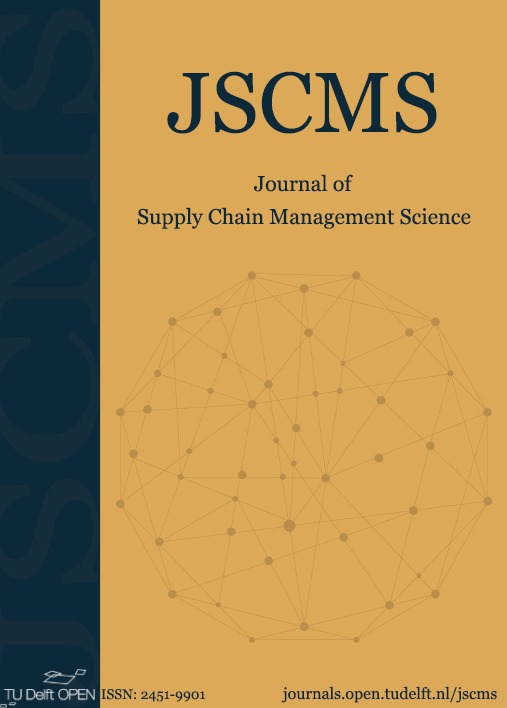Importance of freight mode choice criteria: An MCDA approach
DOI:
https://doi.org/10.18757/jscms.2020.4651Abstract
Road transportation has been the dominant mode for inland freight transportation for decades. Rail and waterways transportation are less frequently used alternatives, but in general more attractive from an environmental perspective. Even though many policies promoting the use of intermodal transportation have been proposed, they have had little impact to trigger shippers to shift mode from road transportation to rail or inland waterways transportation. One main reason might be that the requirements of shippers towards transportation modes are still not well understood. Hence this research investigates freight transportation mode choice with a new approach, multi-criteria decision analysis, as well as from the perspectives of different types of industries and experts. Reviewing the literature, the requirements for transportation modes are abstracted into a set of criteria, including transportation cost, door-to-door travel time, on-time reliability, flexibility, frequency, and reduction of CO2 emissions. As the importance of these factors might be different for different industries, we consider four segments: the manufacturing industry, the agriculture industry, the perishable food industry, and the chemical industry. Data from practitioners, industry experts, and academics are collected via online questionnaires and analyzed using the ‘best worst method’ (BWM) to identify weights for the mentioned criteria. The results indicate that transportation cost is viewed as the most important, closely followed by on-time reliability, while reduction of CO2 emission is viewed as the least important. Several comparison studies are conducted to see any difference in the importance of these factors with respect to different industries or respondent groups.
Downloads
Published
How to Cite
Issue
Section
License
Copyright (c) 2020 Journal of Supply Chain Management Science

This work is licensed under a Creative Commons Attribution 4.0 International License.
JSCMS is licensed under a Creative Commons Attribution 4.0 International (CC BY 4.0) licence. The license means that anyone is free to share (to copy, distribute, and transmit the work), to remix (to adapt the work) under the following conditions:
- The original authors must be given credit
- For any reuse or distribution, it must be made clear to others what the license terms of this work are
- Any of these conditions can be waived if the copyright holders give permission
- Nothing in this license impairs or restricts the author's moral rights


